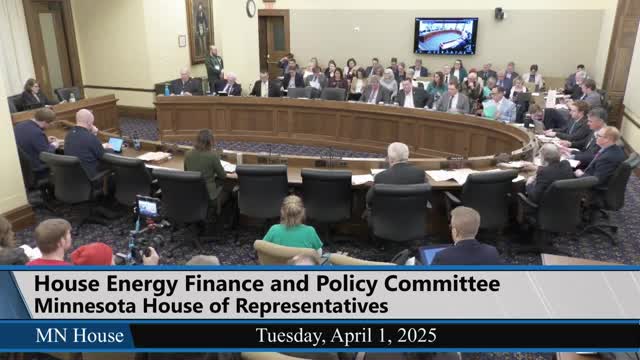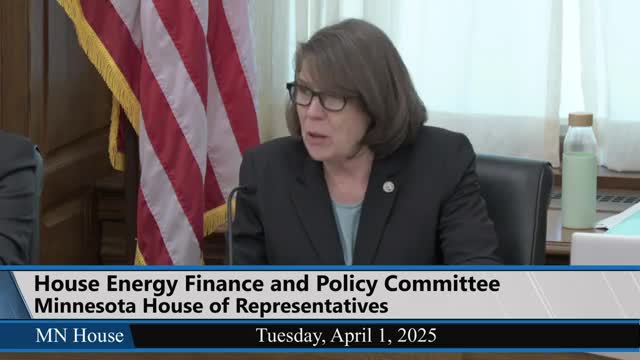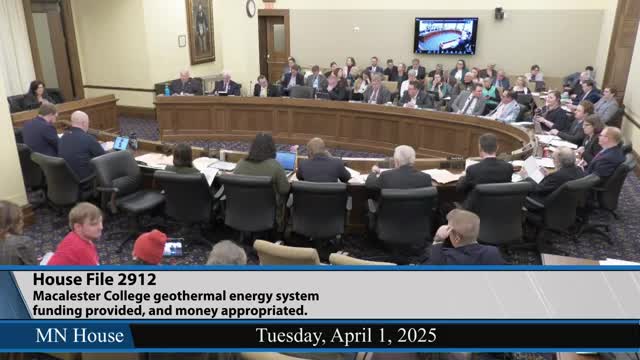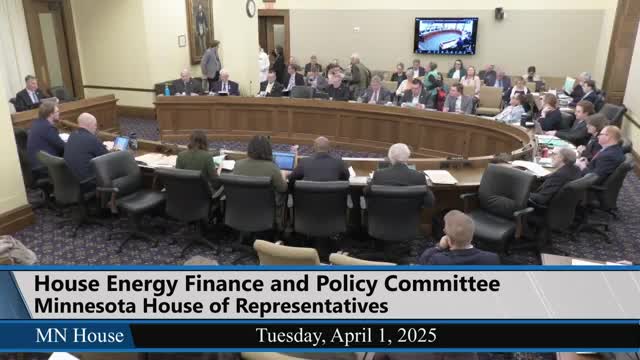Article not found
This article is no longer available. But don't worry—we've gathered other articles that discuss the same topic.

Committee lays over bill to require data centers to help fund grid upgrades, set community protections

Bipartisan agrivoltaics bill would create specialty license plate to fund habitat‑friendly solar and define agrivoltaics

Macalester seeks state grant for aquifer‑based geothermal student housing and campus decarbonization

